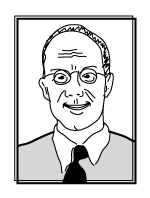Whilst looking for a subject for my Pharmacovigilance blog I stumbled across several internet articles associated with the phrase “death by medicine.” Many of these pages quote the great and the good from years gone by, all essentially saying the same thing – be more worried about the doctor than the disease.
It’s easy to dismiss articles like this as hysteria based on misquoted facts but as we all know the internet whilst being an undeniable force for education and free speech is also responsible for perpetuating some of the most profound nonsense.
For those who think I’m exaggerating, try searching on the term “bloop” and you’ll see how the sound of breaking glaciers picked up by the US National Oceanic and Atmospheric Administration was interpreted by many as something immensely more sinister…
The problem is that unusual explanations are far more interesting than the mundane. So I thought I’d look at three of the oft-quoted facts for myself and see whether or not I have been unwittingly complicit in a global conspiracy of frightening magnitude.
Over 300,000 die in the US every year because of adverse drug reactions (ADRs)
We all know that medicines can have side effects. The entire purpose of pharmacovigilance is to identify and help manage ADRs so that the benefits outweigh the risks.
Whether or not this figure is true, it is meaningless without taking into consideration the effect of the underlying medical conditions being treated or the mortality rates of untreated patients. It’s a little like blaming the design of hospital beds because of the large number of people who die in them.
Only a small fraction of medical errors are reported
It’s hard to quantify the extent to which anything is underreported – medical errors, thefts, illegal immigration – apart from anecdotally. However, it’s easy to speculate on the many motivators that could cause errors to go unreported, from fear of lawsuits and loss of reputation to sheer guilt and incompetence, but how common is it really?
In January last year, the US Department of Health and Human Services published the results of a study that indicated that as few 15% of medical errors are actually reported. That’s one in seven!
Nobody dies from taking homeopathic medicine or vitamins
This statement may be true – although I personally doubt that. However, again it ignores the effect on patients of stopping conventional treatment in favour of “less harmful” alternatives.
I have nothing against alternative medicine – however, it is strongest when it forms part of a holistic approach to health. Not as a like-for-like replacement for all conventional treatments.
I’m reminded of the claims of Dr Matthias Rath who has been accused of endangering thousands of lives in South Africa by promoting a programme of nutritional supplements as an effective way to combat AIDS. Claims that were apparently supported by the former South African President, Thabo Mbeki, and former Minister of Health, Manto Tshabalala-Msimang.
All of this underlines just how vital a robust pharmacovigilance system really is. Without accurate and complete reporting of ADRs, it is not only impossible to effectively manage the risk:benefit equation, it is also hard to counter the more extreme critics.
Is modern medicine responsible for more deaths than it saves? Can we do more to dispel any perception of big pharma caring more about profit than health?
I’d love to know what you think!

Blog Author: Dr. P.V. Practice
www.whitehalltraining.com
Whitehall Training provides online training courses developed to meet the learning needs of both the clinical and pharmaceutical sectors. Clients range from clinical research doctors and nurses to international Pharma companies and CROs.
Students develop their skills and earn CPD points with industry-recognised compliance training. Trainers and administrators save time by assigning and managing licences with our easy-to-use admin system.






